
Those who’ve followed my blog long enough know I’m no fan of the Schrodinger’s Writer Game. Is the writer real or unreal? What IS a real writer?
For ages, we quibbled that a real writer had an agent. A real writer scored a legacy publishing deal. One had to pass the NYC gatekeepers to be a real writer.
On and on and on.
Now that writers no longer regard self-pub and indie as publishing mutations that escaped an Amazon basement (mostly), the debate has lost heat.
Publishing existentialism is soooo 2013 *flips hair* .
Yet, I wonder if this new publishing paradigm is hurting more than helping. And that is a hard thing for me to say since three of the five books I’ve published never would have made it to print if legacy remained the only model.
Even though I signed with one of the most prestigious literary agencies in NYC (in 2012), the big publishers regarded a book on author branding and social media with as much enthusiasm as Ebola.
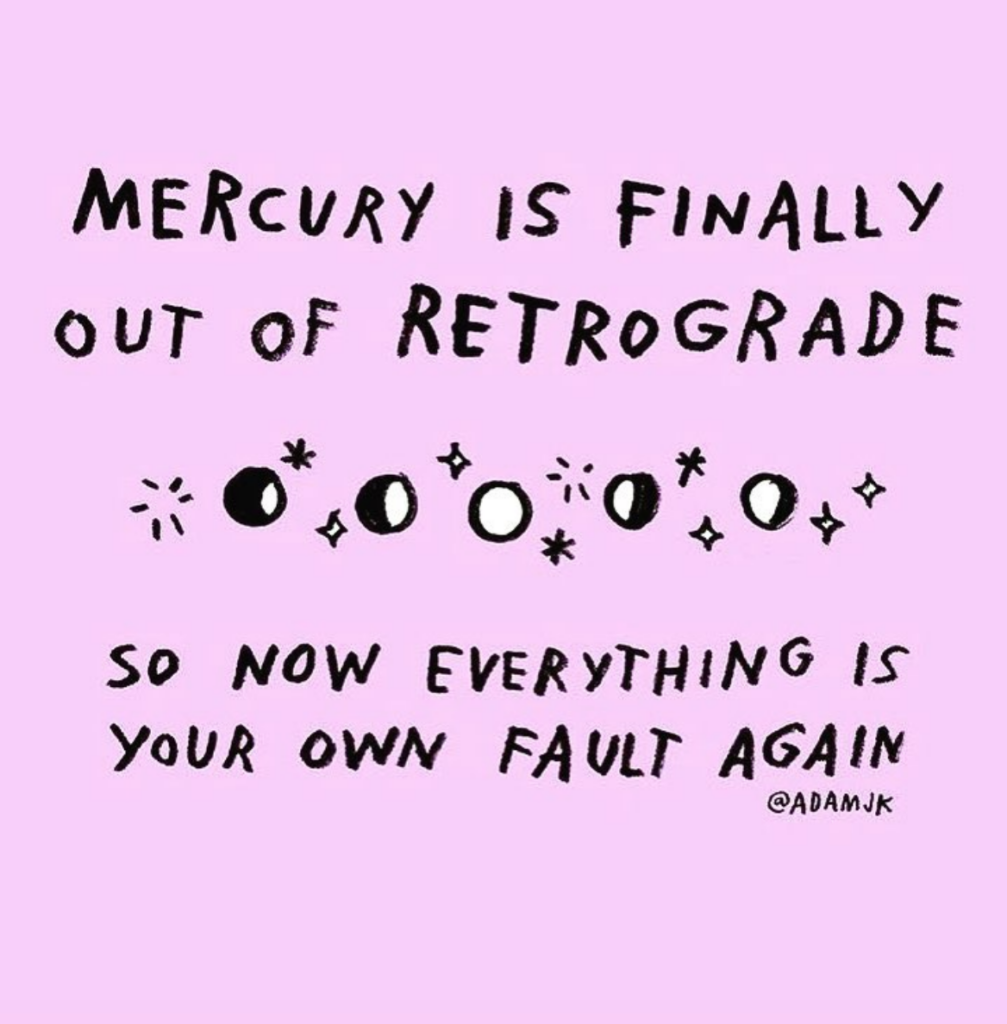
Maybe I was ahead of my time. Perhaps the stars were not in alignment. It doesn’t matter.
The only thing I know is that I would never have become a “real” writer without the other forms of publishing. Indie and self-pub are highly effective for “test marketing” new concepts, voices, and genres.
Alas, despite so many incredible benefits, I’ve been around long enough to see the long-tail. How has the digital age changed the WRITER? Some changes have been for the good. Others? Don’t bode well for our kind.
Before anyone gets their knickers in a twist, full disclosure. I might have a finger pointed at y’all, but I also have THREE pointed back at myself.
Entropy is alive and well. We all slip if we fail to maintain vigilance. Excellence is tough, and can be easily mistaken for the shill…perfectionism.
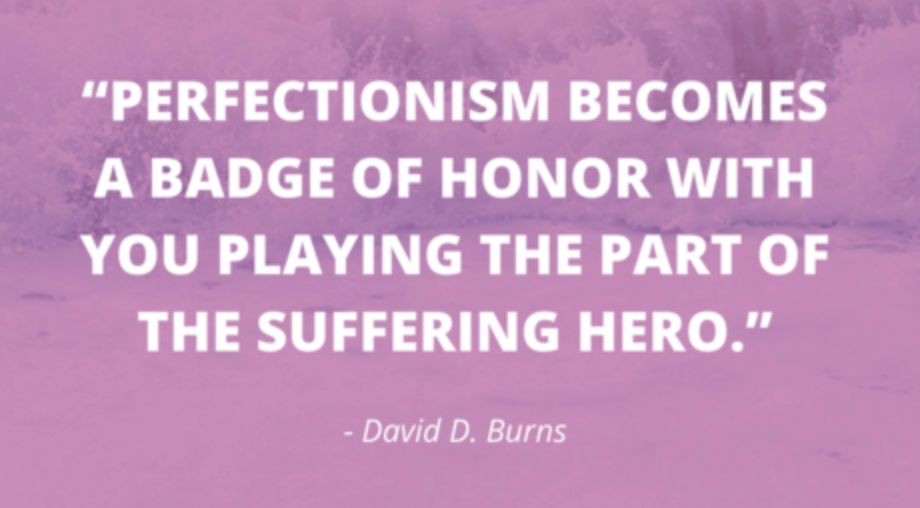
Um…OUCH. *hangs head*
A REAL Writer WRITES
Seems so simple and yet, it is the hardest part of what we do. I know social media is a powerful tool. TRUST ME, it is why I wrote a book about how to do it well.
I wrote Rise of the Machines: Human Authors in a Digital World to be evergreen so a writer could build a brand that actually sold books…and have time to do the most important part of our job. WRITE MORE BOOKS.
Write BETTER books.
My premise was that, if writers understood people—what makes them tick—then branding and social media is a piece of cake. Why? People don’t change.
Read Shakespeare or look up your ex if you don’t believe me.
If, however, we writers had to keep up with every time Google tooted a new algorithm, or InstaSnapFace added a gizmo? We’d burn out. Writing good books was tough enough without adding fruitless distractions.
I find it comical and depressing that in 2008 I had to BEG writers to even use email. Facebook was the devil and “nobody blogged anymore.” These days? It seems like writers contribute more word count to book spam, current events ranting, and pointless Facebook fights than to their novels.
November is the only month I can count on seeing writers actually WRITING a novel.
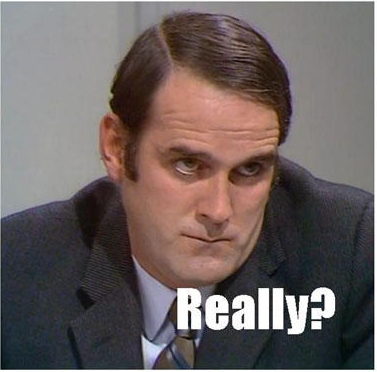
It’s as if we’ve caught digital ADD and have the attention spans of a fruit bat on crystal meth. With self-publishing being an ever-present option, deadlines don’t mean what they used to. Might not mean anything at all, actually.
The modern writer must be extremely self-disciplined. I’d venture to say the modern writer has to be even MORE self-disciplined than 15 years ago, because there is no agent that will drop us or publisher who’ll hand us a pink slip if we tweet more than type.
The point I want to make here is that the self-discipline required to set aside all other fun and chores to actually finish a book or novel is ridiculous. Rank it up there with running a full marathon or competing in triathlons.
But too many “writers” are playing writer.
A REAL Writer Has High Standards
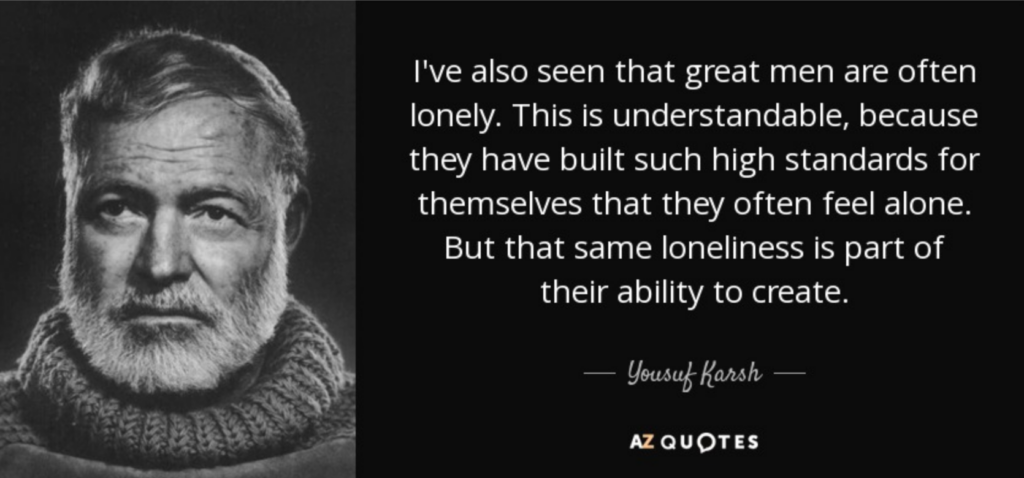
Years ago, when I started blogging, I was unpopular (and probably still an acquired taste). In the early years, I was hard—really hard—on writers, especially anyone who wanted to take a nontraditional path. Our work had to be as good if not BETTER than anything coming out of NYC.
Indie and self-publishing could offer us a lot of benefits, but we needed to take the new powers we’d been granted seriously. Many writers did, and that is exactly WHY these routes have thrived.
Thing is, I’ve been editing since before the Kindle was invented, and have witnessed a steady decline in the overall quality of writing. What writers deem acceptable to turn in as their best.
Case in Point
I regularly run editing specials so writers can get professional feedback on their stories. This saves time and aggravation for a number of reasons.
For instance, a writer might be fixing something that isn’t even broken (description) while ignoring serious problem areas (no plot). Or, a writer may possess talent, but be WAY too green to even consider querying let alone publishing.
The story might be nebulous when it comes to genre, or breaking genre rules in unforgivable ways.
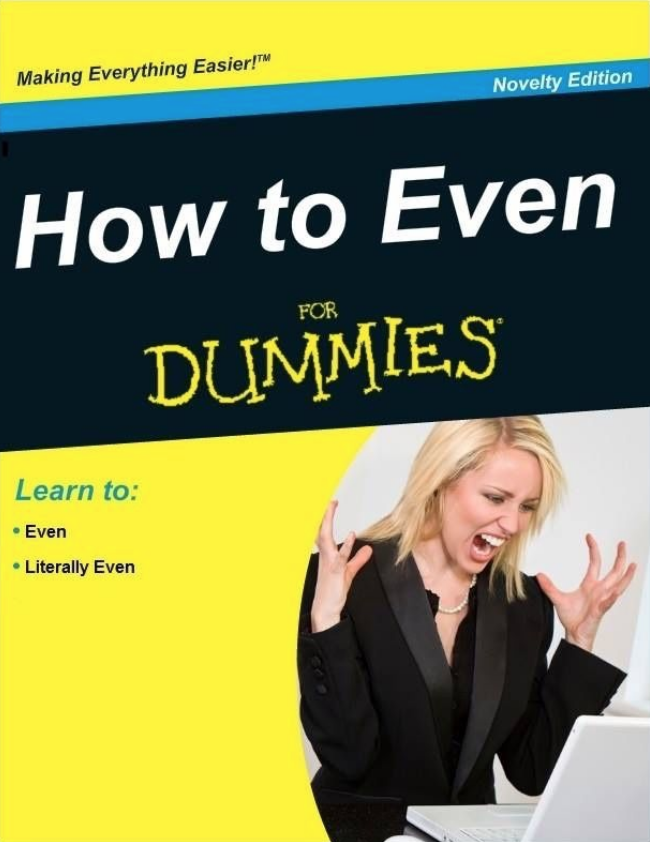
YES, unforgivable ways (like making the love interest the main villain in a category romance). I get many folks don’t care for words like “rules” but rules exist for a reason.
RULES help us sell more books.
If we have no idea what genre our book even is, how do we sell it? How can we connect it to readers? FYI, rules also keep readers from hurling our books across the room.
Yet, the same people who grouse about rules and constraints are often the same ones complaining to me about lackluster book sales.
I’ve been running my pages contest (for comments) for ten years now. I’ve discovered no less than six writers with talent who I then connected to agents I knew (who then scored these writers contracts). I do the same sort of scouting with my editing specials.
If I see REAL talent and promise? I pass it to an agent (*makes note to ask for commission*). The problem? These days I am lucky if a writer takes time to properly punctuate. I can’t even make it to the STORY because the grammar issues alone are giving me seizures.
This is a craft.
It’s a profession, not a playpen.
A REAL Writer is ALWAYS Learning
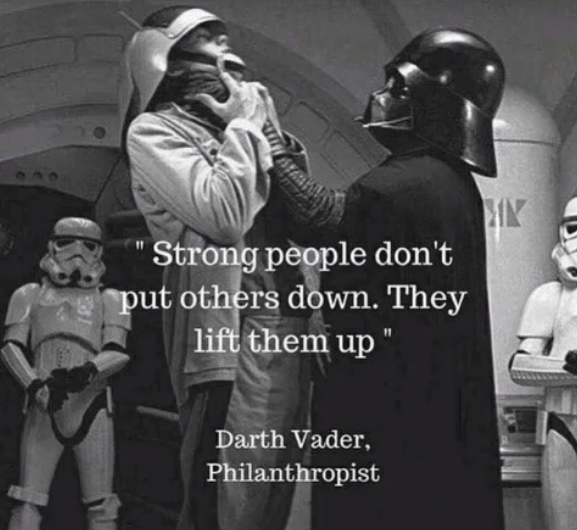
Come on….LAUGH! Lighten up 😛 .
Writer Unboxed, Jane Friedman, Angela Ackerman and Becca Puglisi over at Writers Helping Writers , Joanna Penn at The Creative Penn, Icy Sedgwick’s Blog, Anne R. Allen’s blog, and Elizabeth Craig’s blog are GOLDMINES of information and professional help.
I can never thank all of these people enough for how much they helped ME in my developmental years. How they CONTINUE to inspire me and help me grow as a professional.
When I decided to become a “real” writer myself back in the dark ages, publishing hadn’t changed since radio shows were the hottest form of entertainment. Seriously, publishing had NOT changed in almost a century. The formula was exactly the same.
Write, query, get rejected, drink heavily, question one’s existence, and try harder. Repeat this process enough and eventually the “publishing gods” might grant favor.
Might.
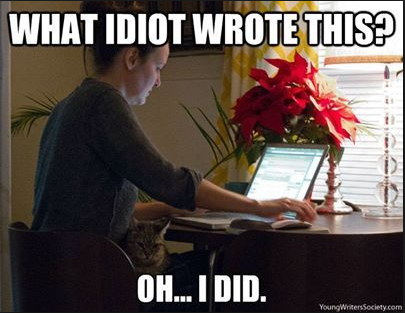
I remember breathlessly waiting for the new Writers’ Digest Magazine to hit shelves and hope the magazine was covering something salient to what I wanted to learn or write. I collected dogeared magazines in binders. Gathered photocopied articles, punched holes in them and added them to my resource list.
A REAL Writer Studies
I bought and read every craft book I could find. My personal favorites include (but are not limited to) Les Edgerton’s Hooked, James Scott Bell’s Plot & Structure, Larry Brooks’ Story Engineering, Christopher Vogler’s The Writer’s Journey: Mythic Structure for Writers, Blake Snyder’s Save the Cat, Aristotle’s Poetics, David Mamet’s Three Uses of the Knife: On the Nature and Purpose of Drama , Jack Bickham’s Scene and Structure, Steven Pressfield’s The War of Art, and Donald Maass’ Writing the Breakout Novel.
Before Web 2.0, the only way an unpublished “aspiring writer” had a hope of connecting with the pros was to sacrifice and save money to attend a conference. The Internet wasn’t bursting with quality blogs, affordable classes, and on-line conferences or Gabriela Pereira’s amazing DIY MFA.
If we wanted to learn from professionals, the price of entry started at around $500. Unless one went for the Old School M.F.A. and that cost the same as a CAR. Yet now that it’s finally affordable and the quality is INCREDIBLE, how much do we take this treasure for granted?
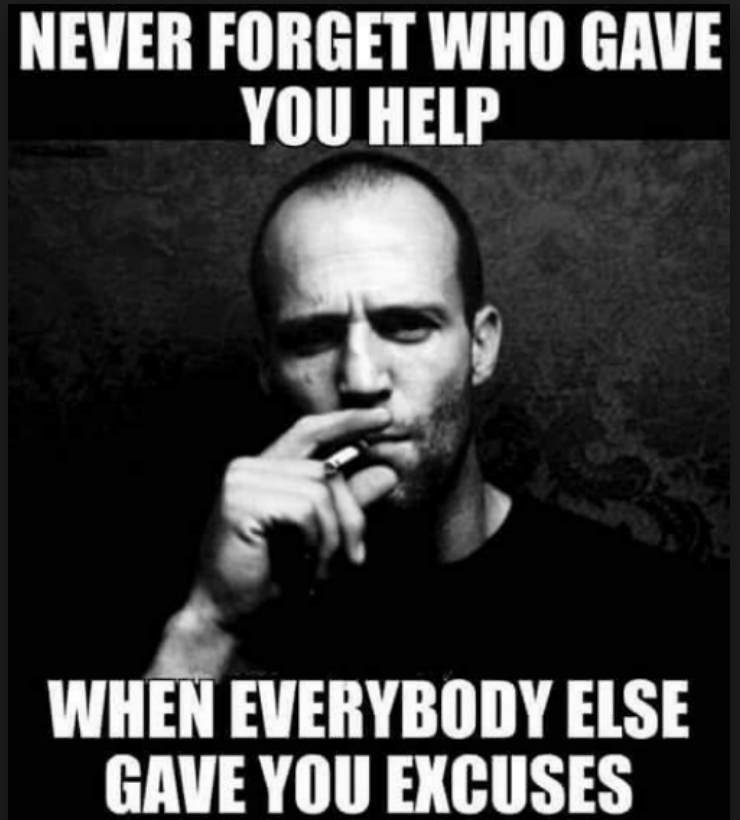
Now that becoming a “published author” is so easy anyone can do it, how hungry are we to learn more about the craft? How much time and money are we investing in being better…or even the BEST writers?
Not investing in being the best at marketing or promotion, or in learning how to sell books using InstaSnapFace, but the best at telling an amazing story.
How much has Web 2.0 made us comfortable, complacent, or dare I say…lazy?
A Real Writer is ALWAYS Reading

So many of the samples I’ve received over the past two years have left me shaking my head wondering if the contributor has ever even read a book. Not only craft books but novels IN the genre they’re writing and—God help us all—the genre where they are publishing.
I get it. I’m mean and cruel.
I can live with that.
Yet, I cannot for the life of me imagine how anyone could be an avid reader and yet have NO idea how to use the most basic punctuation.
And bear with me.
I understand there are writers with learning disabilities, dyslexia, etc. and we all rely on editors for where we’re weak (and even where we’re strong). We become so immersed in a work we cannot see the forest for the trees and need fresh eyes (skilled fresh eyes).
This isn’t what I’m talking about. I’m referring to a blatant disregard for the craft.
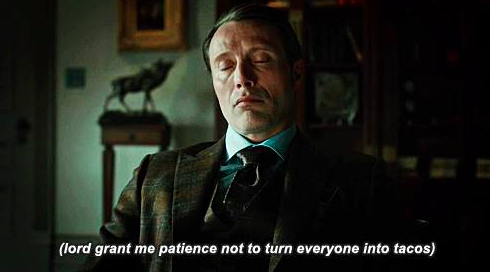
Yep. This has been me.
Because in samples with poor grammar or spotty punctuation, I should at least detect a STORY if this is ONLY a result of being new. In fact I’ve run across samples where authors were weak in technical areas, but showed real promise with a strong storytelling voice.
I was willing to invest in developing these writers (and still do) because a) voice usually is a sign the person has at least inherent talent and b) and voice demonstrates a person who might be new, but who READS.
They’re willing to honor the profession.
Though loathe to mention this, it is not uncommon for me to encounter writers who want to be mega-authors yet will loudly boast they never read books (and don’t even like reading). Brag about never reading craft books.
***So who wants to hire an attorney who brags he’s never read a law book? Just uses Google, trial and error, and is really great at advertising. No takers?
This is, in large part, why traditionally published authors suffered such horrific apoplexy in the emerging years of self-publishing. One can only take the likes of John Locke comparing books to cheap cheeseburger so many times before we SNAP.
(Granted, Locke made a sound business point—and a small fortune—and good for him and his success.)
Yet, how much has this mega-capitalization diminished novels as art? We’ve lowered the bar so low most of us no longer can see if one exists. A bar (standard) that once required heroic efforts to hurdle, now? Doesn’t even register as a speed bump.
A REAL Writer Owns It
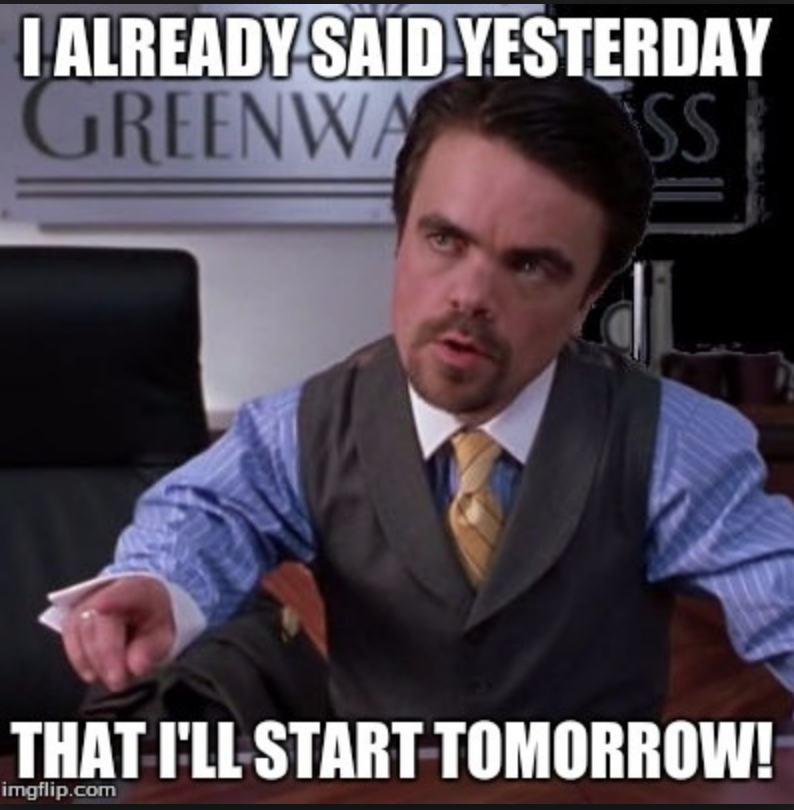
Aaand…this had been me, too.
Excuses are for hacks, poseurs and amateurs. Just so y’all know, this is what I say to myself when I hear excuses tumbling from MY lips. So I am no harder on you guys than I am on myself. I don’t serve anything I won’t eat.
Yes, life is hard and things happen. Trust me, I get it. For those who don’t know, I’ll be brief. In 2012 I had a very large (but aging) family. We had to RENT space large enough to fit us all. It’s now 2018 and I can count on one hand who’s left.
And you should have seen some of the pity parties I’ve thrown.
To be clear, I’m not minimizing. Being a caregiver for terminal loved ones is brutal. Death is painful. Losing a job can crack your world in two. Grief and loss should be acknowledged and tended with the greatest care.
But I’m all about transparency and so I’ll be honest.
I’ve often used my losses as an excuse to hide, my pain as permission to be a pessimist. I spent a long time being—feeling—completely discouraged and STUCK with no clue how to get UNSTUCK.
But I’ve learned two crucial lessons in my journey from wanna-be-amateur-know-it-all-hack to being a professional. The lessons?
1) Never underestimate the power of showing up.
2) You can’t DO THIS alone.
No, I didn’t have the answers and was hurting but I kept showing up on-line (W.A.N.A.Tribe sprints mostly). There, I had accountability. There were other writers I could encourage or who could even encourage me. I wouldn’t have made it without this strong support system.
In the meantime—in the middle of the pain—I kept reading craft books, kept reading authors in all genres, writers far more skilled than I was. Even when it felt like pulling frog’s teeth, I kept blogging, studying, kept doing SOMETHING trusting one day…I’d wriggle free.
Pain isn’t permanent and I knew one day I’d heal enough to use it. But I HAD to stay in the game, even if it meant being stationed at the @$$ end of literary left field.
Real writers make mistakes. We fail. A lot.
If you aren’t failing, it means you’re not doing anything interesting. You’re taking up space.
But, while we screw up…we OWN that we screwed up. We admit when we could have done better, then we do.
Part of being a REAL writer goes beyond never giving up. We must evolve and grow and learn and improve and that only comes with humility, hard work, and (if we have any sense) professional training. Oh, and a TON of practice. Writing stories. Finishing them.
What This ALL Means
There is nothing wrong with writing for fun, for a hobby. That’s what I do with drawing, painting, knitting and crochet.
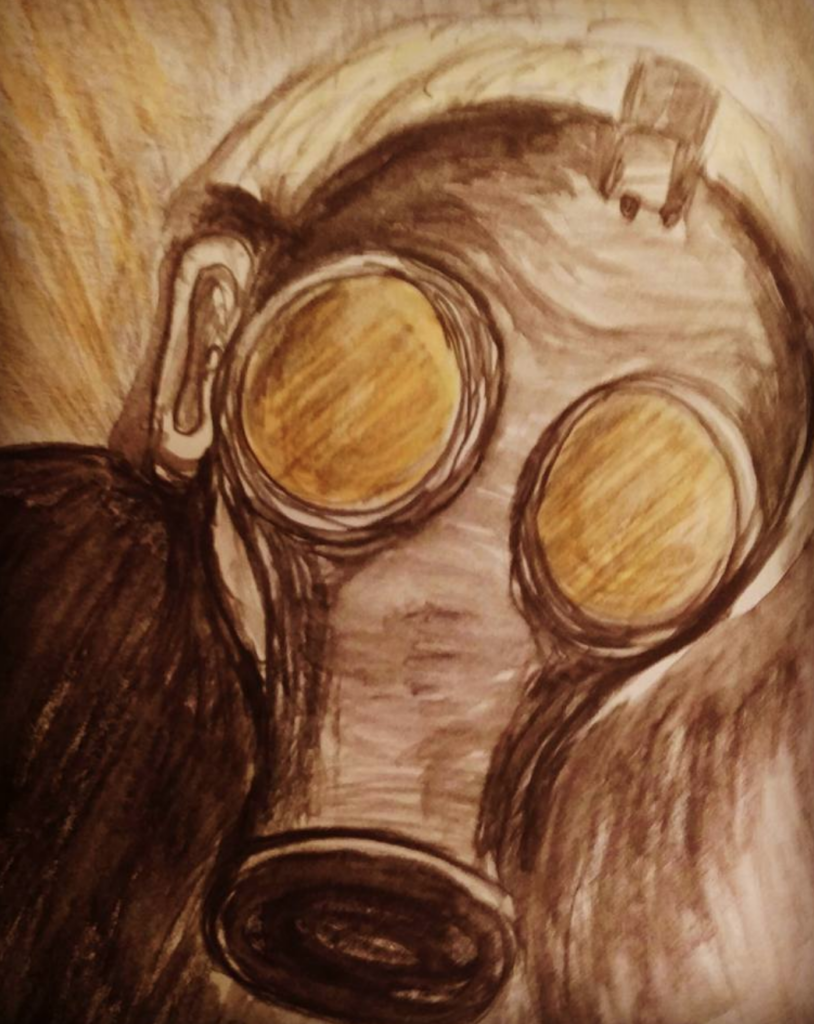
Dr. Who’s “Empty Child” via K. Lamb.
It’s play, a release. But I’m not expecting people to buy my art or my scarves. We need to make a choice. Are we in or out? Stop griping about Amazon and algorithms and how it was so much more awesome before Amazon. Value those who are taking time and investing resources to make us better.
Roll up our sleeves and the DO THE WORK.
I believe in you guys and I know this transition in publishing has been NO cake walk. There have been times even I wanted to throw in the towel. But most of being successful in anything takes place in the mind because the mind forges the will and will is what yields results. Keep your eyes on the art and remember who you are.
You are a REAL WRITER. It’s a CHOICE.
Now go check out some of those incredible blogs I linked you to and treat yourself to some books or classes. Sure, I’d love you to take our classes (listed below and on classes page). But, if I’m not offering what fits your needs, go check out the other people I linked to. They’re the best of the best. Invest in yourself for a change.
The kids can wait 😛 .
What Are Your Thoughts?
Have you grown jaded over the past several years with the changes in publishing? Feel like it doesn’t mean much of anything to be “published writer”? Have you found yourself steadily lowering your own bar without even realizing it? All because it seems TOO MUCH? Hey, I have. No shame here.
Are you excited to get back to writing as a craft and an ART?
I love hearing from you!
What do you WIN? For the month of AUGUST, for everyone who leaves a comment, I will put your name in a hat. If you comment and link back to my blog on your blog, you get your name in the hat twice. What do you win? The unvarnished truth from yours truly. I will pick a winner once a month and it will be a critique of the first 20 pages of your novel, or your query letter, or your synopsis (5 pages or less).
UPCOMING CLASSES! Scroll down or click over to the Classes tab.
NEW CLASS! Beta readers are crucial, but how do we find good ones…when they are pretty much as rare as unicorns? Cait is teaching a class on that TOMORROW NIGHT.
***Remember all W.A.N.A. classes come with a FREE recording included in purchase price.
Go Fish: Finding the Right Beta Readers
 Instructor: Cait Reynolds
Instructor: Cait Reynolds
Price: $55.00 USD
Where: W.A.N.A. Digital Classroom
When: Friday, August 24, 2018. 7:00-9:00 p.m.
REGISTER HERE
Whoever said that writing a book is a solitary job is an idiot.
It takes a village (or at the very least a Facebook group, some friends, and possibly a bottle of wine) to write a book. As writers, we need other writers…and non-writers. But, how do we find the right mix of people to support us? What do we do when they don’t? How do we communicate what we need effectively to beta readers and crit partners? And what the heck is an alpha reader?
What’s more, how do we take the feedback from beta readers and use it correctly?
It’s all too easy to fall into the trap of spinning our wheels on endless edits of the draft of the first draft, to react big and badly to criticism, or to drown in the obligations of reciprocating beta reading for our seventeen new best friends and their manuscripts.
Fear not! This class is going to show you how to hunt down beta readers like big game, befriend them in a way that puts Dale Carnegie to shame, and create long-lasting, mutually-beneficial beta and crit partnerships that are so Hufflepuff/Gryffindor, it makes my Slytherin soul cringe.
This class will cover:
- Wherefore art thou?: Where to find beta readers;
- Alpha betas, beta betas, omega betas: The different types of beta readers, and why we need them;
- Fish or cut beta: What to do when a beta reader relationship isn’t working – fix, fight, or flight?
- I’m looking at the beta reader in the mirror: Are you the best beta reader you can be, and why improving your own skills will make you a better writer;
- Gospel vs. grain of salt: How to balance thoughtful consideration of critique with Pavlovian instant tweaking, and why beta readers should never be the one holding the map on the hike.
A recording of this class is also included with purchase.
MORE CLASSES!
(Check out our page of current classes!)
Also, a small house-keeping note: if you’d like to see more of our shenanigans, check out our video page!
 When Your Name Alone Can Sell
When Your Name Alone Can Sell
Instructor: Kristen Lamb
Price: General Admission $55.00 USD/ GOLD Level $175
Where: W.A.N.A. Digital Classroom
When: Thursday, SEPTEMBER 13th, 2018. 7:00-9:00 p.m. EST
REGISTER HERE
LEARN TO BE A BRAND BOSS!
All authors need a brand, so this class teaches how to locate and cultivate your audience into passionate fans who BUY YOUR BOOKS!
How can you grow your platform and turn your name alone into a bankable asset? Not as hard as you might have been led to believe.
You DO NOT need to be a tech guru/mega-high-pressure-sales person to excel at this. In fact, best you aren’t.
Yet, the reality is that in the digital age of commerce, consumers rely on brands more than ever in human history. They’re overwhelmed and we can help them out….by finding US.
Consumers (which is code for readers) buy from who they know, like and trust. In a sea of infinite choices a powerful NAME is a tremendous asset.
Can you say “James Patterson”?
The single largest challenge all writers face in the digital age is discoverability and connecting with our audience is a challenge but nothing we can’t handle.
This class will address:
- What is a brand? How to make one uniquely your own.
- How to BE YOU! You’re a writer, not an insurance salesman!
- Harness your imagination & creativity for better results (No one likes SPAM, so don’t serve it!).
- How to use this information to locate, engage and cultivate an audience.
- Myths about exposure.
- Common scams that will wreck your brand and earning ability.
- Why most promotion is a waste of money.
- A list of expensive and not-so-bright ideas for reaching readers.
- Knowing when and HOW to promote.
Overall this class is about working smarter not harder. This class is to teach you to think strategically so all energy is focused. Sure, we have to hustle, but why not hustle and there be an AUTHENTIC PAYDAY for all that hard work?
GOLD LEVEL AVAILABLE: This is you working with me (Kristen Lamb) for 90 minutes building, defining, refining your brand and putting together a PLAN! Time is money and professional consulting saves BOTH.
****A FREE recording is included with purchase of this class.
More Than Gore: How to Write Horror
 Instructor: Kristen Lamb
Instructor: Kristen Lamb
Price: $40.00 USD
Where: W.A.N.A. Digital Classroom
When: THURSDAY, August 30th, 2018. 7:00-9:00 p.m. EST
REGISTER HERE
Humans have always been fascinated with what scares them which is why horror fiction is a staple genre. It is also, quite possibly, the most challenging genre to write. Giant bugs and chainsaws just don’t get the screams they used to.
Blood, guts, gore and shock factor are low-hanging fruit (and always have been) and worse than that? They simply don’t have the impact they used to.
Audiences are too desensitized. This means we need to work harder to dig in and poke at what REALLY frightens/disturbs people.
Though this genre is extremely challenging to write well, there is an upside. The horror genre lends itself well to the short form (novellas and short stories).
Believe it or not, some of our staple horror movies–and the BEST horror movies—were actually adaptations of short stories and novellas (1408 by Stephen King and Hellbound Heart by Clive Barker being two examples).
Meaning, if you want to go Hollywood? Hollywood loooooves horror.
In this class we will cover:
- The science behind fear and why people crave it. Why fear is even healthy!
- Psychology of fear, thus how to locate the pain points.
- Why audiences are craving MORE horror (Yes, this actually does go in cycles).
- The different types of horror fiction.
- The importance of character in horror.
- How horror can actually resonate much like literary fiction.
- How to generate page-turning tension that will leave readers with a story they can’t stop thinking about…and that might even give them nightmares.
A recording of this class is also included with purchase.
Keywordpalooza: Tune in, mellow out, and learn to love keywords for Amazon
 Instructor: Cait Reynolds
Instructor: Cait Reynolds
Price: $55.00 USD
Where: W.A.N.A. Digital Classroom
When: Friday, September 7, 2018. 7:00—9:00 p.m. EST
REGISTER HERE
It’s one of the universe’s great mysteries… the same word can both boost and drown your book in a category (mind BLOWN, man!).
Keywords also seem to evolve every five minutes…or are we the one evolving, like a butterfly having a dream of SEO (trippy, dude!)? Like gravity and Jane Fonda’s hair in ‘Barbarella,’ the popular rules for using keywords value over-inflation and the slavish following of fads.
But, like Talbot’s tweed and mother’s pearls, certain marketing strategies and techniques are enduring classics that stand the test of time. They’re not flashy like bellbottoms, nor do they yield dramatic overnight results like ironing your hair. Yet, ignore trends, and we risk getting left behind…kind of like buying electric typewriter ribbon because that whole ‘computer word processing’ thing will never take off.
This class won’t just help you turn on, tune in, and drop out of the keyword rat race. We’ll also cover:
- Fully body contact SEO: when and where to use keywords, and what publishers know that you don’t;
- Fantastic keywords and where to find them: which websites, lists, search engines, and Magic 8 Balls yield the best keyword research results;
- Mix and match like a Parisienne: no, seriously, how to mix consistent ‘classic’ keywords with the latest trends like a Frenchwoman wears a crisp white shirt with this season’s Hermes scarf;
- Same bat genre, same bat book, different bat keywords?: learn the differences between keywords for ebooks, print, and audio;
- And so much more!
A recording of this class is also included with purchase.
Building Planet X: Out-of-This-World-Building for Speculative Fiction
 Instructor: Cait Reynolds
Instructor: Cait Reynolds
Price: $55.00 USD
Where: W.A.N.A. Digital Classroom
When: Saturday, September 8, 2018. 10:00 a.m.—12:00 p.m. EST
REGISTER HERE
Speculative fiction may be a way of seeing the world ‘through a glass darkly,’ but it can also be one of the clearest, most pointed, and even most disturbing ways of seeing the truth about ourselves and our society.
It’s not just the weird stuff that makes the settings of speculative fiction so unnerving. It’s the way ‘Normal’ casually hangs out at the corner of ‘Weird’ and ‘Familiar.’
But it’s trickier than it seems to get readers to this intersection without letting them get bogged down in the ‘Swamp of Useless Detail’ or running them into the patch of ‘Here be Hippogriffs’ (when the story is clearly about zombies). How do we create a world that is easy to slip into, absorbingly immersive, yet not distracting from the character arcs and plots?
This class will cover:
- Through the looking glass darkly: How to take a theme/issue/message and create a world that drives it home to the reader.
- Ray guns and data chips: The art of showing vs. telling in world-building.
- Fat mirror vs. skinny mirror: What is scarce in the world? Valuable? Forbidden? Illegal? What do people want vs. what they have vs. what they need?
- Drawing a line in the sand: What are the laws, taboos, limits of this world? What is unacceptable to you/the reader/the character? How are they the same or different, and why it matters.
- Is Soylent Green gluten-free and other vital questions: All the questions you need to ask about your world, but didn’t know…and how to keep track of all the answers.
A recording of this class is also included with purchase.
Populating Planet X: Creating Realistic, Relatable Characters in Speculative Fiction
 Instructors: Cait Reynolds & Kristen Lamb
Instructors: Cait Reynolds & Kristen Lamb
Price: $55.00 USD
Where: W.A.N.A. Digital Classroom
When: Saturday, September 8, 2018. 1:00—3:00 p.m. EST
REGISTER HERE
It’s a time-honored tradition in literature to take an ordinary person out of his or her normal life and throw them into a whirlwind of extraordinary circumstances (zombies/tyrants/elves/mean girls optional). After all, upsetting the Corellian apple cart is what great storytellers do best.
It’s also that very same ordinariness and normalcy that first gets the reader to identify then empathize with the characters and stick with them (and the book) through to the end.
But, what do we do when…
Our ‘ordinary’ protagonist lives with a chip implant and barcode tattoo, and our antagonist happens to be a horde of flesh-eating aliens…or a quasi-fascist regime bent on enforcing social order, scientific progress above ethics, and strict backyard composting regulations (those MONSTERS!)?
How the heck is the reader supposed to identify with that? I mean, seriously. Regulating backyard composting? It would never happen in a free society.
This leaves us with two challenges in creating characters for speculative fiction: 1. How to use the speculative world-building to shape the backgrounds, histories, and personalities of characters, and 2. How to balance the speculative and the relatable to create powerful, complex character arcs.
This class will cover:
- Resistance is futile: What does normal look like for the characters? What’s different or strange, and how to get readers to accept that retinal scans and Soylent Green are just par for the course.
- These aren’t the droids you’re looking for: What are the discordant elements around the characters? What are their opinions about it? What are the accepted consequences or outcomes?
- You gonna eat that?: Whether it’s running from brain-eating zombies or fighting over dehydrated space rations, what is important both physically and emotionally to the character? What is in short supply or forbidden?
- We’re all human here (even the ones over there with tentacles): The basic principles and techniques of creating psychological touchpoints readers can identify with.
- Digging out the implant with a grapefruit spoon: In a speculative world, what are the stakes for the character? The breaking point? The turning point?
- And so much more!!!
A recording of this class is also included with purchase.
Beyond Planet X: Mastering Speculative Fiction
 Instructor: Kristen Lamb
Instructor: Kristen Lamb
Price: $55.00 USD
Where: W.A.N.A. Digital Classroom
When: Saturday, September 8, 2018. 4:00—6:00 p.m. EST
REGISTER HERE
Speculative fiction is an umbrella term used to describe narrative fiction with supernatural or futuristic elements. This includes but it not necessarily limited to fantasy, science fiction, horror, utopian, dystopian, alternate history, apocalyptic fiction, post-apocalyptic fiction.
Basically, all the weird stuff.
Gizmos, gadgets, magic, chainsaws, demons, fantastical worlds and creatures are not enough and never have been. Whether our story is set on Planet X, in the sixth dimension of hell, on a parallel world, or on Earth after Amazon Prime gained sentience and enslaved us all, we still must have a core human story that is compelling and relatable.
In this class we will cover:
- Discovering the core human story problem.
- How to plot these unique genres.
- Ways to create dimensional and compelling characters.
- How to harness the power of fear and use psychology to add depth and layers to our story.
- How to use world-building to enhance the story, not distract from it.
***A recording of this class is also included with purchase.
The XXX Files: The Planet X Speculative Fiction 3-Class Bundle

Instructors: Cait Reynolds & Kristen Lamb
Price: $110.00 USD (It’s LITERALLY one class FREE!)
Where: W.A.N.A. Digital Classroom
When: Saturday, September 8, 2018. 10:00 a.m.—6:00 p.m. EST.
REGISTER HERE
Recordings of all three classes is also included with purchase.
About the Instructors:
 Kristen Lamb is the author of the definitive guide to social media and branding for authors, Rise of the Machines—Human Authors in a Digital World. She’s also the author of #1 best-selling books We Are Not Alone—The Writer’s Guide to Social Media and Are You There, Blog? It’s Me, Writer. She’s just released her debut thriller The Devil’s Dance.
Kristen Lamb is the author of the definitive guide to social media and branding for authors, Rise of the Machines—Human Authors in a Digital World. She’s also the author of #1 best-selling books We Are Not Alone—The Writer’s Guide to Social Media and Are You There, Blog? It’s Me, Writer. She’s just released her debut thriller The Devil’s Dance.
Kristen has written over twelve hundred blogs and her site was recognized by Writer’s Digest Magazine as one of the Top 101 Websites for Writers. Her branding methods are responsible for selling millions of books and used by authors of every level, from emerging writers to mega authors.
 Cait Reynolds is a USA Today Bestselling Author and lives in Boston with her husband and neurotic dog. She discovered her passion for writing early and has bugged her family and friends with it ever since. She likes history, science, Jack Daniels, jewelry, pasta, and solitude. Not all at the same time. When she isn’t enjoying the rooftop deck that brings her closer to the stars, she writes.
Cait Reynolds is a USA Today Bestselling Author and lives in Boston with her husband and neurotic dog. She discovered her passion for writing early and has bugged her family and friends with it ever since. She likes history, science, Jack Daniels, jewelry, pasta, and solitude. Not all at the same time. When she isn’t enjoying the rooftop deck that brings her closer to the stars, she writes.

 When Your Name Alone Can Sell
When Your Name Alone Can Sell






48 comments
1 ping
Skip to comment form
First, “Read Shakespeare or look up your ex if you don’t believe me” made me giggle.
Second, thank you. This post left me with a few things to think about. For me, the technical side has never been the issue–I am one of those MA types–but I’ve been giving a lot of thought to what makes a writer and have been struggling with applying the title to myself. It always feels “put on,” like a kid playing dress up. (Maybe because it seems that everyone plans to write a book someday, in their free time, because it’s just that easy.)
I’m still wrestling with it; I’m not sure there are any truly definitive answers. In the meantime, I’m curious: Is Brand Boss a regular course offering? I’ll be at a writing retreat, and unplugged, when it’s offered next, but I’ll be on the lookout.
Author
You get the recording for free with purchase. And, when I do offer it again live (likely early 2019) I will give you a pass to get in 😉 . So you are covered.
I love this post so much. It really resonated with me and makes me want to quit the excuses and force myself to sit my ass down and just WRITE. My book won’t finish writing itself. (And THANK YOU for calling out the people who refuse to read books!)
Thank you! Sometimes I need someone to make me get my @ss in gear, and this post helped. I’ve never heard of a lot of the books you mentioned. I’ll have to look them all up. Thanks!
And yesterday I was just talking with Jenn on WANA about my Godzilla dream, which she helped me understand. I’ve tried so hard at this whole writing gig and have eight books written and so many books that they’re half of all the boxes when moving to show for it. I’ve also failed so hard, and tried so hard to discover if I’m not supposed to be a writer and have been lying to myself all this time. The Godzilla dream (and Jenn) showed me I need to be strong and commit 100% or this stuck, directionlessness is gonna consume me.
Thanks much for the shout-out, Kristen. I agree with this 100%!Especially about reading. A real writer reads!
Great post! Thanks for calling it like it is. I don’t ever want to settle, and I don’t want anyone else to, either. Now I better get back to work!
Thanks for this. I am a new unpublished writer who hopes to be traditionally published someday. I am chagrined by the number of writers I encounter who “don’t want to play the waiting game” or “want to be in charge of their own careers” who push out substandard work and call themselves published. Technically, they are. But for my non-writing friends it makes me look like a slacker or a failure as I work to hone my craft and not just shove it out there. I appreciate your thoughts. Yours is one of the few blogs I still follow.
Author
No you are not a slacker at all so long as you are learning, practicing and writing. If I’d never written about social media and branding I likely would have held out, too.
I have only CHOSEN to self-publish one book and that was “Rise of the Machines: Human Authors in a Digital World.” My agent LOVED the book but he couldn’t sell it. If one of the top agents in NYC can’t get you traction…just move on and change tack.
Since I was teaching about all forms of publishing, I wanted to try my hand at self-publishing so I knew what it was like, what all it entailed.
Granted, I’ve technically self-published TWO. But, “The Devil’s Dance” was initially published by a small boutique publisher. I only self-published when I re-released the book after getting my rights back. But in BOTH instances, I was unwilling to self-publish unless my work met a certain standard…a VERY HIGH one.
So hang in there. Remember, eagles don’t flock. Sometimes having a high standard means you won’t have a lot of company. Thanks for the blog love!
My thoughts are: The Darth Vader meme made me laugh, a genuine laugh not just a passing chuckle. Thank you for that.
The second thought is how much this resonates on many levels for me – especially the idea of the perfect being the enemy of done, even if the perfect is the definition of one’s self and one’s career.
“Waste no more time arguing about what a xgood manx *writer* should be. Be one.” Marcus Aurelius (mostly)
You’re right. Period.
I have seen so many writers just throw things up because there is this false sense that it’s about numbers and nothing else. But doesn’t it always have to be about the work. About writing the best story you can?
No, you don’t need to spend 10 years to turn out the perfect novel, but you should spend the time the story needs to be fully realized. If you aren’t doing that, then why are you bothering?
I suppose the good news is that eventually those in it for fame or fortune or followers eventually burn out and move onto something else. Meanwhile, I’ll just do my best to write stories that people want to read.
Thanks for this, Kristen.
Annie
“Current events ranting” *sheepish look* Guilty. Even just today. But to be fair, I have had numerous health issues that have kept me from writing. A keto diet has been a blessing (after 3 months, I am now medication FREE!), and I was frustrated that some idiot professor demonized coconut oil based on flawed science from the 1950s. My health is so much better that I feel now I can actually complete NaNoWriMo this year without coming down with a fever halfway through the month.
This is an excellent post, and yes, I’ve felt jaded. I read craft books (when I can tear myself away from novels) and do my best to research and improve my craft. My last book received great reviews. Though I only managed to snag 6 in total. Even being nominated for the RONE award didn’t help. I feel as though it’s been lost in the sea of unedited drivel, which isn’t fair because I put conscious effort (and professional edits) into it. I’m not saying it’s my best work. I even recognize how much better my writing is in my WIP, but it’s better than just 6 reviews and only selling to family and friends. :/
Awesome blog post … it left a much-needed mark on me! “… the self-discipline required to set aside all other fun and chores to actually finish a book or novel is ridiculous. Rank it up there with running a full marathon or competing in triathlons.” LOL, I’m a runner who’s finished many marathons and for me, they’re easier!
One of my biggest issues, (among many,) is starting over. I’ve traditionally published two novels, (the last in 2012,) and I’m struggling to find my voice, get back in the game, and feel like a part of the writing community again. So thank you for this great post! I reminded me what is truly important: writing, reading, and learning. 🙂
Am I a ‘real writer’?… I think I am. I’ve had eight novels, and a poetry anthology, published by a small independent publisher, and another novel is coming out shortly, but when I read your comment (which I realise is tongue in cheek) it makes me wonder.
You wrote:
“For ages, we quibbled that a real writer had an agent. A real writer scored a legacy publishing deal. One had to pass the NYC gatekeepers to be a real writer.”
Hmm?… Why am I wondering?
Well I don’t have an agent: I don’t know what a ‘legacy publishing deal is: and I haven’t a scoobie what the NYC gatekeepers are… so you can forgive me for this uncertainty.
So why don’t I have an agent?
It’s not because I didn’t want one, but when I wrote my first novel I began submitting to agents… and had written at least two more novels by the time I started querying publishers directly. (From a weekly e-mail bulletin of publishers accepting un-agented submissions).
I emailed one to ask if my work fitted his criteria, and on the strength of my e-mail’s grammar and spelling (Yeah, really), he phoned me. After a long and enjoyable chat, and following his appraisal of my first book, he agreed to take a chance on me.
This brings me to my main point… With self publishing becoming so easy, and inexpensive if you’re only e-publishing, more people are doing it. The market is getting flooded.
Added to this, the advances in IT tech have given everyone the opportunity to write that book they’ve always wanted to write, because most people today have access to a computer with word processing capabilities.
However, this has led to agents’ e-mail in-trays becoming swamped with aspiring JK Rowlings and Dan Brownes. The slush piles are flooding their offices… or would be if they were all on paper. Instead of wading through all the hopefuls, they go for the low hanging fruit… the celebrity ‘authors’, who’ve also realised that they can write a book, and those ‘gift’ books about celebrities put together by others.
Publishing and selling books has now become a bigger lottery than it ever was before, and I’m sure that many, many, great writers and their books are being lost to both publishers and readers… buried under the agentt’ and publishers’ mountains of un-edited, un-proofread, and often unreadable manuscripts.
Those works which are being self published, direct to Amazon for Kindle or Smashwords for other readers, are very often equally as unready for the market as those in agents’ slushpiles, but nonetheless, their authors have put them out there, unfiltered, to swamp the market, further diluting the chances for those books which are properly edited and worth reading of ever getting discovered by readers.
This! I was recently having a discussion with someone about a professional writers organization that changed the standard of ‘professional’. My argument – professional groups should always be raising the bar. The definition of the word ‘professional’ is *one’s main paid occupation*.
I pulled out my kid’s loose tooth once. Doesn’t make me a professional dentist. Yet my dentist has a pamphlet on Amazon that sold six copies, and he’s a professional writer.
My friend took this as a slam against Indie published authors – when I was trying to convey the opposite. Lowering the bar doesn’t honor the Indie authors who are out there writing, marketing, and constantly learning! Lowering the bar hurts all of us.
Author
Oh…that physically hurt. THIS is the crap I am talking about. And YES, the professional organizations need to be raising the bar. Thanks so much for the comment and insight though a small part of me just wept for you that you can’t claim you are a professional dentist. WHAT? Barbers originally did that job right? 😛
Great blog post! You’ve inspired me to get my butt in gear and write. No more excuses. It’s been hard being a caregiver for my husband and dealing with the VA, and at the same time having my own long-term disease GBS/CIDP which requires weekly infusions. I’ve had my pity parties and telling myself I need rest days. But for me, I think fear plays a big part too. Hope to join you soon in the W.A.N.A.Tribe group.
Oh, Kristen, I have been queen of excuses lately. (You’ve been spying on me, right?). I blame InstaSnapFace (I know, that’s another excuse…dang it).
Tomorrow, first thing, I’ll be back in the sprinting room with y’all. *deep breath* I hope my WIP hasn’t perished from neglect (the way that African violet accidentally stuck in the closet did).
Thanks for the motivation!
I’ve been reading (and loving) your blog for two years now. I love that you’ve kept at it, even though some of us writers are utterly thick sometimes.
I would love to be entered in your monthly drawing. I’m starting my third series (my eighth book), and I intend to aim HIGH this time, so I would love to get your feedback if I’m lucky enough to win the Lamb lottery.
I heart yoga pants too. 🙂
I always see the email for your posts when I should be writing and I think I’m just gonna click on this to see what it’s about and then I’ll read it later. Never happens. If I click, I read the whole thing. You’re that good. Thanks for the constant inspiration (and kicks in the pants). You always seem to be talking about specific things I need help with at the time. Keep it up. You’re making a difference, even if most people don’t comment.
Another incredibly instructive article, thank you. I try my hardest to respect the craft. I have no idea if it will help me to progress or not, but I love working with the language and syntax as much as with the concept. I endeavour to produce the best work I can. Learning screenwriting helped me understand structure, which I was told was the major problem with my first two (unpublished) novels. I’m about to dismantle and reconstruct one of them, with a view to creating a stronger structure. As a reader, I find nothing worse than picking up a promising title that’s badly written or punctuated. I have a theory that part of the problem is because the “official” publishing industry no longer respects the structural or copy editor role the way it used to, and now we see the results. Garbage in, garbage out.
Thank you. I needed to read this. I’ve been letting life kick me in the butt. Instead of finishing the book readers keep hounding me for, I’m polishing up the perfect cover (I hope), and listening to audio books to learn everything I can about the craft, science, how the masters do it, etc. (I might also be a tad addicted to audio books. They get me through the long commutes and even longer work days, and they save my eyes, but I digress.)
I strive to go above and beyond and make each book an experience I hope readers won’t soon forget. I try to learn something every day that will make me a better writer, marketer, indie author. So, the next book can be even better. I practice copywriting and craft stuff by writing mini-adventures in my newsletter.
But showing up isn’t enough. I’ve been doing that for months. I have to show up and DO THE RIGHT WORK. You know, finish book 5. It’s shaping up to be even better than book 4. But there’s that nagging fear, I will screw that up.
There’s a lot of ways to show up as an indie author, but not all that work will get the book done well and published.
A bad book with a great cover and blurb will sell. I’ve bought more than a few owing to my voracious audio-book listening habit. (I have 1700 and counting.) If that book sucks, those readers will bypass that author’s next book. They won’t recommend them to their friends.
In fact, I just listened to a bestselling traditional author’s latest book, but he hadn’t done his homework. He violated the rules of that genre and alienated me within the first hour of the audio book. If it was a physical book, I would have thrown it at the nearest wall in disgust. Since it was digital, I returned it and left a review letting others know that book is not what it claims to be.
I see so many blog posts and arguments on author groups about how it’s not about what’s INSIDE the book that counts. Yes, the cover and blurb sell that book, but the story itself sells the author’s next book, as you so perfectly pointed out. Just getting the book out there is important, but it’s got to be done the best it can be, or readers won’t come back for more.
I’m so glad you called out that kind of thinking. You would not believe some of the posts I’ve seen asking what the absolute MINIMUM that needs to get done to have a book that pass Amazon’s system checks and sell, sell, sell.
So, thank you for pointing that out and for the kick in the pants. Showing up isn’t enough. Doing the work isn’t enough. I have to show up and DO THE RIGHT WORK.
Please forgive any typos. I did my best, but my eyes are tired and strained from staring at lines of code all day.
Your comment, about what’s inside the book selling the next and subsequent books, is a good point… especially if you write ‘series’ fiction.
We all improve as we continue to write, but sadly often our books are bought based on our earliest work, which may be flawed, or at least not as good as later novels.
I’ve just sent my latest book to my publisher. I think it’s the best book in the series (so far)… much better in its writing and plotting, compared to the first book I wrote (and to the two short prequels that were written after it, but published beforehand as tasters or introductions to the series.)
The problem with series novels is that most readers will start with the first book, particularly if the plots follow each other chronologically (Only one of mine is a true sequel, i.e. one which gives away the ending of the preceding book, but there are a few references to earlier stories in subsequent books) Readers’ impressions of the first book count a lot to the success of later books.
Great post!
I’m struggling to find a decent critique group. One group tries to not cause hurt feelings and has edited out any useful criticism. Group two was better. Commenters like the story and offer mild suggestions, but there are four published authors in the group. I am new and realize my writing needs improvement. No illusions here. I am testing two more groups, so I am not giving up.
In the meantime, I write every day. Every day, seven days a week. I have a minimum of two hundred words. In September I’m upping the game and will complete a short story ~3k words every day along with my other writing.
Hopefully, I will find a group who knows the real meaning of critique and constructive criticism. Wish me luck.
It’s hard. Seriously hard. I’ve been looking for a good group or at least partner for years. Prerequisite, know your grammar
A word of caution–jumping from a 200-word minimum (though I’m sure you usually write far more than that) to a ~3k short plus additional writing is a big leap. It’s possible you can do it. But don’t get down on yourself if that’s more change mojo than you have in you.
Just keep writing. You’re already doing that. Keep going.
Wow Kristen, this post really spoke to me. I have been playing at this for a long time now and hit a huge pothole a couple years ago. I was gung ho and all in, and then the reality hit me like a tonne of bricks. I wrote three books and hit the slush piles with many many rejections. My confidence in writing took a nosedive. I haven’t finished anything in about 2 years. I dabble on my blog and social media sights and seriously considered shelving the whole thing. Something keeps pushing me to start again, write again, do something again. I do read a lot. I just keep making those excuses for not having any time to write. I need to give up the excuses. Thanks for the motivation 🙂 You are awesome.
Quote:
“I wrote three books and hit the slush piles with many many rejections.”
Sadly, Cynthia, this is the norm. At least you got rejections… which means somebody read your e-mail, if not your whole submission.
Many MSS sit in slush piles for months before someone sees them and sends a rejection (though they’re occasionally automated after a set time). Don’t let those get you down… especially the ones which give no details, as they’re more likely just ‘time served’ responses. Rejections which give reasons at least show that your submission was looked at, and depending on the reason, can be worth their weight in gold as useful advice. They should be valued, even if they only tell you that you’ve submitted to a publisher/agent who doesn’t handle your kind of book.
The trouble is that nowadays the only prompt replies you can expect are automated acknowledgements of receipt… Rejections often take months to arrive (I had one arrive two years after sending (and after I’d already had a couple of books published by the publisher who took me on).
Hey Kristen! I’ve been a fan of your blog for quite some time and read it *cough, cough* religiously. Okay, fine, I missed last week’s, but it’s still patiently waiting in my inbox. 😛
This post really resonated for me in a way that I have been festering about for quite some time. RANT ALERT! I’m a perfectionist-in-the-a$$ author. Sure, I go on vacation or occasionally work on other projects, but I am also continuously either writing, researching, learning, editing, tweaking, re-reading, etc., etc. — you get the drift — to *hopefully* the betterment of my craft. Do I consider myself to have GAS (Golden Author Syndrome)? No. And yet I also can’t help but think that a lot of authors out there are self-publishing their stories waaaaaaay before they are ready. Or with typos. Or plot holes. Or, heck, it’s gotten so that I sometimes even shudder when I read the blurb. Seriously? There are no periods at all in this thing. What the heck? Was it even proofread before it got slapped up on Amazon?
I’m sorry (not sorry) if this makes me an author/reader snob. I’m happy to own that cuz haters gonna hate, hate, hate or whatever. But I also have to confess that this has made it very difficult for me to find what I personally feel is solid, strong romance novel. Nine times out of ten, I’m rolling my eyes, shutting down my Kindle and shouting NEXT!
Now, before everyone gets all worked up, I will fully admit my work isn’t perfect. But I’ve committed to being in a constant state of trying to develop and improve whatever and wherever I can. I do this because of my love for words. Because I have an “unhealthy relationship” with the way they can make a person laugh, cry, get excited, remember…and if an author has done their job right, even smell, see, taste and feel everything that is coming through the POV character.
After working so hard to do the best I can, I can’t help but sit back and think, where is the love, people? What in the world happened to the respect?
Words have power. Lest we forget. And I’m talking, like, serious Captain America meets end-of-Ragnarok Thor superhero power here. Please, please, pah-leez before any author assumes they’re done, we should all take a brief moment to remember that. RANT DONE
Thank you for this. It’s a harsh reality that most need to hear, but, I fear, only the ones already on the bandwagon will heed. I’ll keep waving that flag with you, though!
Timing is everything. Well everything when it goes along with hard work and constant effort. The timing for this blog could not be more perfect. I’ve gone back to writing after far too long discouraged by books selling in spite of no craft, no story, no…anything. That’s not my problem.
Thank you for being you and continuing to kick my excessive fanny. Now to figure out how to link back from my blog. It’s been a while
” ”
The above is the sound of one hand clapping. (The other is typing). I’ve followed your blog long enough to know your mantra that “A writer is anyone who writes” and while there’s real truth there, I was always uncomfortable with it. Thanks so much for acknowledging the dark underside of the mantra. A mechanic isn’t someone who just opens a hood and pokes around, a doctor isn’t someone who’s bookmarked WebMD. A writer is someone who writes AND cares enough to keep improving.
Bless you, Kristen. I finally decided, half-way through my first draft, that I was mucking the story up big-time. So, when I finally was told to go ahead and work on my book (jaw drop) rather than trying to sneak it in when no-one was looking, I decided I needed better story blocking. I got 300 lined index cards and went to work. OMG! The story that finally came out! I love it. The first half of the story, the part I’ve spent months writing sequentially, doesn’t live up to the rest that I’ve blocked out on the cards. Well, guess I’ll write the 2nd half, then go back and rewrite the first. Wish me luck! ?
I agree that when it comes to self publishing, deadlines don’t tend to mean what they used to. I’ve always struggled with perfectionism and self-discipline, which is why it is so important to have someone (or a group of someones) to keep us accountable. This is one of the reasons why I continue blogging and have some helpful beta readers. Recently I have also joined Romance Writers of Australia to help keep me going.
Thanks for this post Kristen as it has given me the motivation to keep going as well as a list of more books to read. 😉
“The point I want to make here is that the self-discipline required to set aside all other fun and chores to actually finish a book or novel is ridiculous. Rank it up there with running a full marathon or competing in triathlons.”
Yay! Wrote (and self-published) book; do not ever have to run marathon. That’s what you meant, right? 😀
I aim to be constantly improving in quality, but I’m trying to be faster as well. This year I’m aiming to do NaNoWriMo for the first time, so I’ve got to finish the first draft of my WIP by the end of September. And I have a plan. I have a streaming cold/light flu, too, but I’m not letting that stop me!
<>
This was so me! Still is, except most articles I save now are digital. I’ve purchased two books on writing in the past two weeks–and my shelves are already overflowing. I’ve had more than 50 fiction novels published with major publishers, plus published indies, as well as written books on the craft of writing for Writer’s Digest, and I STILL want to learn and grow and improve. I’m in the minority, as evidenced by conferences and writing organizations. I set a writing improvement goal every year. I know I can be better.
I appreciate your frank observations and remarks. So true every one.
Aw jeeze, I forgot you can read minds…..
I think we need a “Procrastinators R Us” group, I will be the poster child. I spent all of 2016, instead of writing, sending out resumes and answering queries for my beloved husband who was unemployed for almost the whole year and depressed. He could do it, but as he said, you do it so much better. And, through my World of Warcraft habit, I talked about him needing a job, someone had a job, and they connected. After a year of sending out resumes.
Writing anything more than “I’m good, I have 35 years experience, and you need me” wasn’t going to happen due to the stress. It not only killed the writing, the damned medical condition came out of remission and I was miserable.
Then, last year, it was a combination of being sick and politics. I have had to wean myself off of reading everyone’s Facebook because there is so much hatred, so much angst, that it’s making me feel horrible. So, yeah, no writing much of the year.
I have kept up marketing, doing conventions (had my best weekend EVER last weekend, almost sold totally out of books!!) and I’ve been trying to get back in the saddle. It’s just hard to do.
Ok, I will take the challenge, I need to get busy doing things again and get everyone out of the blown up building and on the way to …well, I know where. Let’s see if I can keep up.
A reminder of why this blog is so excellent.
I went into a tailspin over my writing career. Writing has been one of my deeply-held ambitions. However, I have always struggled with procrastination, which stems from a number of factors, of which familial and psychological problems are the most frequent. I have always been focused on performing well in all areas of academics, whilst also being a terrible procrastinator. It took years for me to realize that trying to do everything under the sun and being over-ambitious was the problem.
At the beginning of this year, I was frustrated with my lack of progress in languages, so I decided that spending time on writing was the problem. Therefore, I stopped writing. I have not written much for over 6 months now. Then came the torturous realization that I DID want to write, and not writing was actually helping me to waste time on useless hobbies like scrolling on the Internet and pretending to do research. But research for what?
And focusing on one academic area (Mathematics, which I used to hate) has been successful. So the idea that I would improve in one whilst sacrificing the other was a mistake. After recently focusing on improving my fitness, I realized that I did, in fact, have the discipline to be consistent. But I am not making the time. The problem is, that after all this agonizing, I have absolutely no idea what to write. I have no idea if I will ever publish a book or not. So this article is definitely helpful in re-orienting me back towards a writing mindset, as I feel as though all the writing advice I had developed over the last 3 years has seeped out of my brain.
It hasn’t, but it hasn’t been used, either.
The long and short of this is that I have no excuse not to get back to work and see what comes of it.
Kristen, I rarely comment but always read, because the material you put out sounds so much like one of the people in the control room in my head. You never fail to give me something I can use to get better, and that earns you a permanent spot in my week’s reading.
This post was no exception. I’m struggling and broken, but I show up every day and put new words on the page. I’m trying to figure it out, how to do all the things, what WAY to do all the things, while robbing both Peter and Paul–and, good heavens, Mary–to hang in there long enough for my skill to grow enough to make it hard to ignore me. I’ve made some money (far more than I deserve). I think I’m a real writer.
I just wanted to say that you make it a little easier to believe that. It’s no small gift. I had to thank you for it.
Thanks for another excellent kick in the rear to keep honing my writing craft! With school starting, I SHOULD end up with an hour to myself daily to do just that- wohoo!
Your WANA group sounds amazing. I checked out the link- before applying for membership, is there anywhere I could look up just what being a member of the group entails?
Author
Just go to http://www.wanatribe.com and sign up. I have to approve you, but other than that, we meet on the Chat page pretty much M-F (almost all day) and often Sat mornings. Have been for almost 4 years now.
Hey Kristen, I LOVE this post. As a longtime reader (who also writes as a hobby for now and would love to maybe be published someday), I thought it was just me who noticed the decline in quality of writing. Granted, I’m not a professional editor and don’t have a whole lot of experience editing others’ work. But I do feel like a lot of the books being published as of late (say, the past 5-10 years?) are of lower quality. I include both indie and traditional. Not saying that ALL writers are bad nowadays—but it seems like I don’t want to finish a substantial amount of the books I start.
Or maybe I’m just getting old and curmudgeonly and have lower tolerance for the fiction I read. 😀
Your posts are always the kick in the tail I need, and the ten page critique you did for me was a huge help. (Which I realized after much wailing and gnashing of teeth.) I really appreciate that you keep posting and sending out rays of snarky and sarcastic sunshine even when life bites you.
But having someone outright saying what the nervous voice in my head insists on being true helps me navigate all the conflicting messages! Thank you.
Yes! Thank you! Being an editor has made it blatantly obvious that there are zero standards now. It was upsetting at first when I got all kinds of horrible writing–that was “edited three times already” but was filled with every error imaginable, from grammar and basic punctuation to no plots and awful characters. No amount of money was worth wading through the mess. Now I only edit true professionals and turn down everyone else. I’m not wasting my life on anything or anyone less. To those chosen authors who work so hard and produce excellent books, I give my very best and will do anything to help them. We are a quality team, producing quality work, and we succeed.
Thanks for the encouragement and reminder that we must be even more disciplined than ever before as writers. Not always easy, but worth it!
Please never stop sharing the Uncomfortable Truth as only you can!
I had stopped spending any time in writing over the last year and a half and I have missed it so, but working the job that paid the bills was required. I have missed reading your blog. Now I want to return with the fury of someone who really wants to do this for a career. This blog was just what I needed to see this morning. Thanks!
It’s interesting how much this parallels my own thoughts of late. I’d recently received a rejection for a short story, and I paused to consider the reality that whether my story was accepted or rejected didn’t actually change the quality of my story or my writing. All it could ever do is potentially prove what is already true. I was struck by how often I think some version of the phrase “I’m a writer,” but while the words never change, the grammar does. Sometimes it’s an exclamation, sometimes it’s a period, and too often, it’s a question mark. There’s that desperate desire to silence my own doubts with “proof”, when the reality is I need to recognize that publication won’t “change anything” about my writing, it’ll only be proof of something that’s been true for a long time. But there’s also a saying (I forget where I heard it), that you have to forget and relearn something many times before you truly “learn it”.
Thank you for sharing your thoughts. As always you have a keen insight and a sharp voice that cuts to the heart of the matter.
[…] read more This is Gonna Leave a Mark: What Makes a “Real” Writer? […]